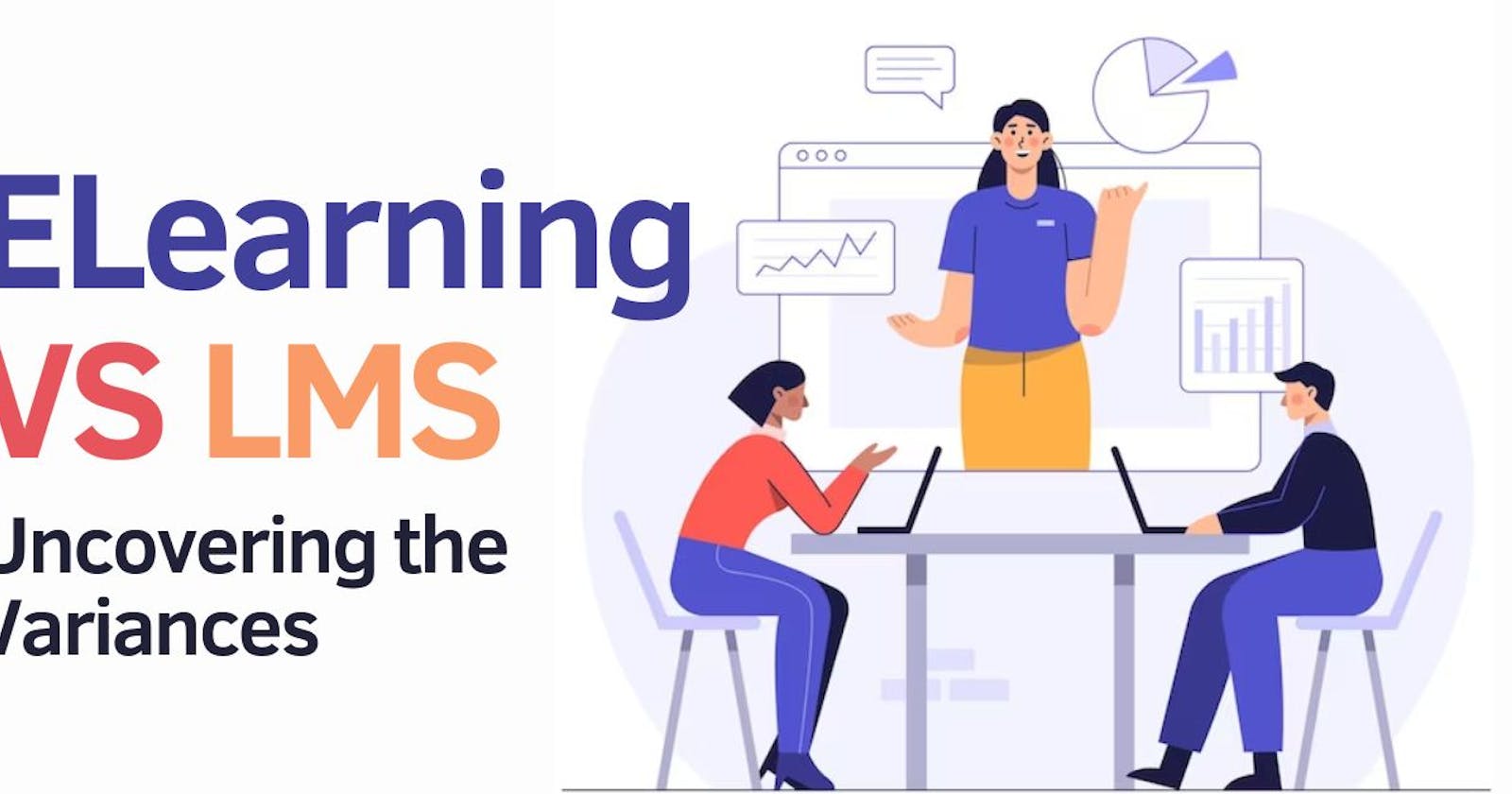The dawn of digital technology has caused a paradigm change in the educational scene. Terms like eLearning and Learning Management Systems (LMS) have become common as the education industry welcomes innovation. Do eLearning and LMS refer to the same thing, or do they reflect different aspects of the field of education? Let's examine the subtleties.
What is eLearning?
E-learning, also known as electronic learning or web-based training, is the practice of providing students and other learners with education via a browser, anywhere, at any time, over the internet or a corporate intranet.
What is LMS?
A software application called an LMS, or learning management system, enables you to design, deliver, and track training courses and programs.
There are several LMSs available, and they all have various features and functionalities. Since every business has unique training requirements, choosing the "right" LMS can be challenging.
What Distinguishes E-Learning from Traditional Education?
ELearning platform services revolutionize traditional classrooms. It is essential first to break down the components of eLearning in order to understand the differences between it and LMS. What distinguishes e-learning from traditional techniques? The transition from textbooks to online modules, which allow students to access information remotely, is indicative of this change.
What are the Key Elements of eLearning?
In order to understand the difference between eLearning and LMS, let's examine the salient characteristics of eLearning:
Multimedia Integration to accommodate a range of learning styles and e-learning materials.
eLearning programs' assessments can be dynamic and interactive, providing students with fast feedback.
This approach fosters personalized learning experiences by giving students the freedom to move through courses at their own speed.
eLearning breaks down geographical boundaries so that anybody, wherever in the world, may easily interact with instructional materials.
How are eLearning and LMS Different?
In essence, eLearning is the same as LMS learning, although not all eLearning is LMS. Let’s look at the main differences.
Operational
First off, the main purpose of eLearning platform services is to host material for online courses. On the other hand, an LMS provides additional capabilities like file sharing and messaging to improve the learner's experience.
Cost
You have greater control over your material when you use a learning management system. You can add a tonne of powerful features as well. As a result, an LMS's price might increase. In conclusion, if you want a straightforward method of presenting online learning materials without all the customization choices, an eLearning platform might work just as well.
Support
A key consideration when buying any kind of software is high-quality support. By choosing an LMS, you may start support requests and send inquiries for any problems you might run into. Support options aren't always available on eLearning platforms. You, therefore, run into difficulties creating or updating your online course materials.
How is eLearning Backed by an LMS?
The connection between an LMS and eLearning is notable. Let's look at how:
Content Management- An LMS makes it easier for learners to access eLearning content by facilitating their organized storage and retrieval.
Progress tracking- Educators may keep an eye on students' individual and group development using the LMS, pinpointing any areas that could need further help.
Collaborative Learning- To promote a feeling of community among students, learning management systems (LMS) frequently include tools for discussion boards and group projects.
What are the Main Takeaways?
It is critical to comprehend the differences between eLearning and LMS in today’s digital era. LMS facilitates the dynamic, content-driven experience of e-learning. When taken as a whole, eLearning LMS shows how education has changed throughout time and provides current learners with flexible, accessible, and engaging learning opportunities.
